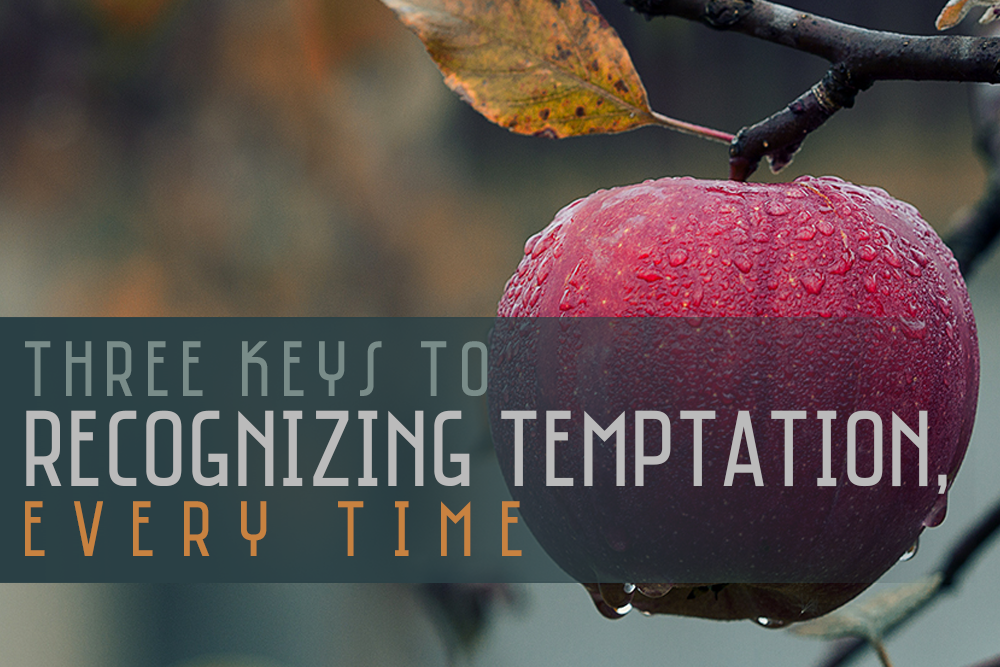Temptation has one goal: to take us away from God.
Temptation’s hook—the personal bait that lures us into sin, the trap that ensnares us into that which is accursed and devoted to destruction—is the devil’s guarantee that what we think we want and/or need outside of God’s will can truly satisfy us.
It is important to remember one thing: temptation never comes from God.
Let no one say when he is tempted, “I am being tempted by God,” for God cannot be tempted with evil, and he himself tempts no one. But each person is tempted when he is lured and enticed by his own desire. Then desire when it has conceived gives birth to sin, and sin when it is fully grown brings forth death” (James 1:13-15 ESV).
How to recognize temptation
While blatant temptations abound, it’s often the more subtle forms that wreak havoc in the Christian life.
The ability to look past good intentions and recognize when they’re the vehicle to succumbing to personal temptation is essential. So how do we do it?
First, it’s important to recognize that temptation works to draw us away from three things:
1. The will of God (Galatians 6:18)
2. The Word of God (Matthew 16:24-26)
3. The worship of God (1 Peter 5:5-11)
It is worth your while to take inventory of any affinities, choices, or situations in your life that draw you away from those three things.
If something in your day-to-day is working to replace God’s will with your own, beware.
If it is offering you confidence in things outside the Word of God, beware.
And finally, if it replaces your worship of God with a worship of any other thing, including others “worshiping” you or your work, beware.
Why temptation is dangerous
The enemy knows that by drawing us away from the will, Word, and worship of God, three vital parts of our relationship with God will soon be destroyed.
1. If we are ignoring the will of God, we will quickly lose dependence on Him.
2. If we are neglecting the Word of God, we will find ourselves, intentionally or not, losing confidence in Him.
3. If we are lax in the worship of God, it is only a matter of time until we lose obedience to Him.
We must ask ourselves, what is a believer with no dependence on, confidence in, or obedience to that which he believes in?



